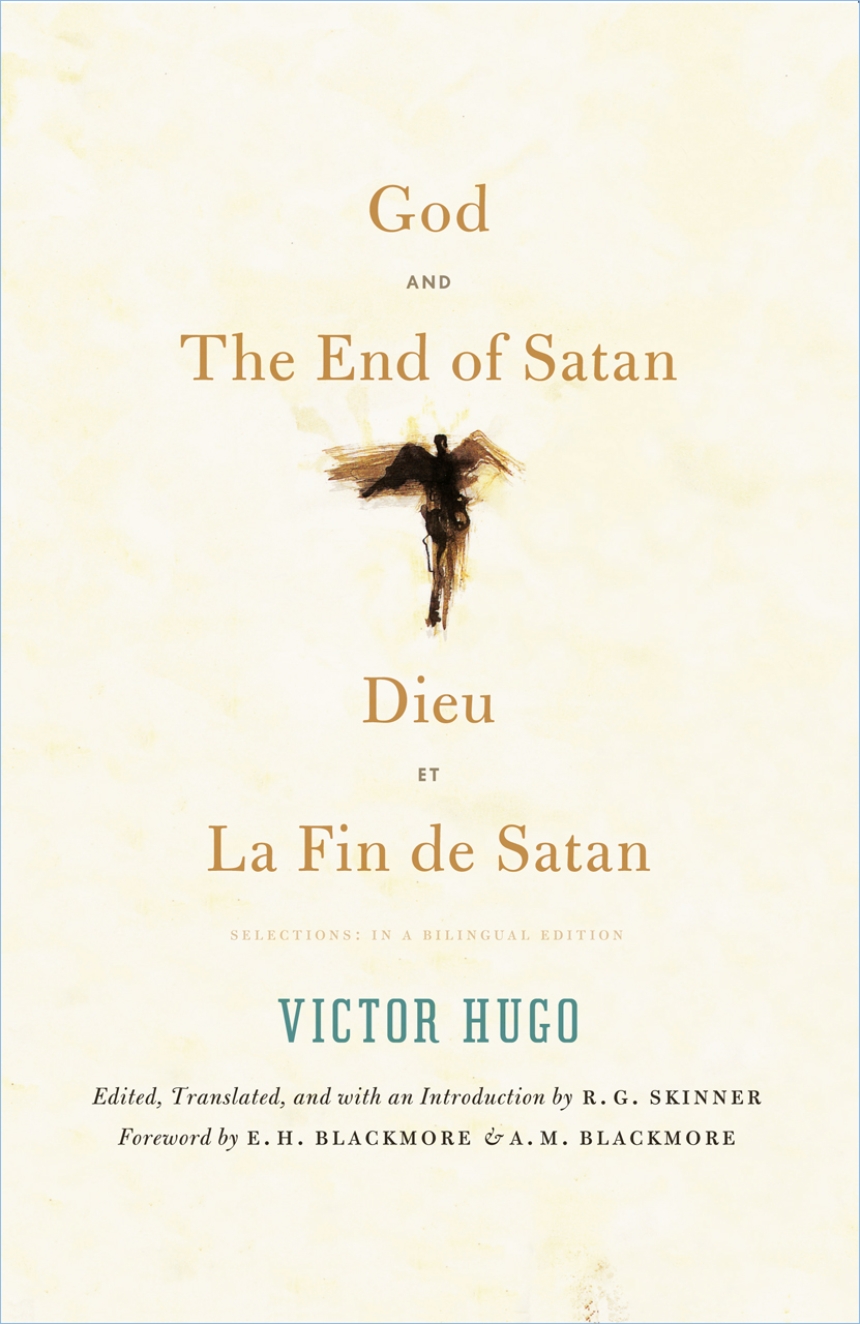God and The End of Satan / Dieu and La Fin de Satan
Selections: In a Bilingual Edition
9780983322047
9780983322054
Distributed for Swan Isle Press
God and The End of Satan / Dieu and La Fin de Satan
Selections: In a Bilingual Edition
While living in exile with his family on the Channel Islands off the coast of Normandy, Victor Hugo wrote some of his greatest poetry and prose, including Les Misérables and two epic poems: Dieu and La Fin de Satan. Dieu pictures the imaginary search for God by a nameless protagonist, who must face the possibility of failure in this quest. La Fin de Satan, an indictment of prison, war, and capital punishment, depicts an attempt at reconciliation between good and evil.
This book brings together abbreviated editions of these two book-length poems—unfinished and unpublished at the time of the author’s death—comprised of selections that capture their visionary and mystical essence. The poems are accompanied by an introduction framing them within the author’s experience as an exile and tracing their publication history.
Victor Hugo is one of the most important figures in the history of French literature, and this beautifully rendered translation brings two of his lesser-known works deservedly to the forefront.
This book brings together abbreviated editions of these two book-length poems—unfinished and unpublished at the time of the author’s death—comprised of selections that capture their visionary and mystical essence. The poems are accompanied by an introduction framing them within the author’s experience as an exile and tracing their publication history.
Victor Hugo is one of the most important figures in the history of French literature, and this beautifully rendered translation brings two of his lesser-known works deservedly to the forefront.
Reviews
Table of Contents
List of Illustrations
Foreword by E.H. and A.M. Blackmore
Introduction
Acknowledgements
Part One from God
The Threshold of the Abyss
-The Human Spirit
-The Voices
-After the Voices
The Ocean of the Heights
-The Bat
-The Griffin
-The Light
Epilogue
Fragments
Part Two from The End of Satan
Beyond the Earth I
-And Then There Was Night
The First Page
-The Entry into Darkness
-The Emergence from Darkness
First Book: The Sword
Third Strophe
-According to Orpheus and According to Melchisedech
Sixth Strophe
-The Mindful Magi
Beyond the Earth II
-Satan’s Feather
Second Book: The Gibbet
-Judea
-Jesus Christ
-The Crucifix
Beyond the Earth III
-Satan in the Night
-In the Air
--Song of the Birds
-The Angel of Liberty
Third Book: The Prison
-The Skeletons
Beyond the Earth IV
-Satan Forgiven
-Denouement
Epilogue
-Daybreak
-“O worlds from the beyond…”
-The Great Dead
Fragments
Glossary
Notes
Bibliography
Foreword by E.H. and A.M. Blackmore
Introduction
Acknowledgements
Part One from God
The Threshold of the Abyss
-The Human Spirit
-The Voices
-After the Voices
The Ocean of the Heights
-The Bat
-The Griffin
-The Light
Epilogue
Fragments
Part Two from The End of Satan
Beyond the Earth I
-And Then There Was Night
The First Page
-The Entry into Darkness
-The Emergence from Darkness
First Book: The Sword
Third Strophe
-According to Orpheus and According to Melchisedech
Sixth Strophe
-The Mindful Magi
Beyond the Earth II
-Satan’s Feather
Second Book: The Gibbet
-Judea
-Jesus Christ
-The Crucifix
Beyond the Earth III
-Satan in the Night
-In the Air
--Song of the Birds
-The Angel of Liberty
Third Book: The Prison
-The Skeletons
Beyond the Earth IV
-Satan Forgiven
-Denouement
Epilogue
-Daybreak
-“O worlds from the beyond…”
-The Great Dead
Fragments
Glossary
Notes
Bibliography

